Requirements from practice
The National Council for Education and Human Resources Development recently held a meeting to solicit comments on the draft Project to make English the second language in schools for the 2025-2035 period, with a vision to 2045.
Sharing about this issue, Mr. Le Xuan Quang, Principal of Nguyen Van Troi Primary and Secondary School (Ya Ly Commune, Quang Ngai), said that English is not only a communication tool but also a "door" to global knowledge. Most scientific , academic and cultural documents use English, so accessing this universal language will create a great advantage for Vietnamese students on the path of integration.
Many Asian countries such as Singapore, India or countries using two languages in parallel such as Canada, South Africa have demonstrated clear benefits when English becomes the main language or second language. However, according to Mr. Quang, Vietnam needs to prepare carefully because of the differences in language background between regions. Especially in ethnic minority areas, students have to approach English as a third language, after their mother tongue and Vietnamese, leading to uneven learning levels.
Mr. Quang emphasized the need to carefully prepare the teaching staff, curriculum, facilities and practice environment. Currently, the country is still short of over 30,000 English teachers; a number of teachers still teach using old methods, which do not meet the requirements of innovation. In addition, many teaching materials are slow to be updated, and there is confusion when organizing the teaching of science subjects in English due to the lack of bilingual teachers.
Regarding the language foundation, Mr. Quang believes that it is necessary to strengthen Vietnamese - the mother tongue before strongly implementing English to avoid causing language development disorders in young children. In addition, the curriculum is not really suitable between regions; the quality of investment in foreign language education varies greatly due to different levels of education and economic conditions.
Facilities are also a major challenge. Many schools in remote areas still lack English classrooms, audio-visual equipment, or even solid classrooms. The learning and assessment environments are not uniform, making it difficult to measure student progress. Meanwhile, schools in urban areas have easy access to socialized resources, creating a distinct advantage.
According to Mr. Quang, to be successful, the project must be thoroughly researched, widely consulted for feedback and have long-term investment.
“This is an important task to elevate Vietnamese people in the new era, but it needs to be done step by step, firmly,” Mr. Quang said.
Create a real and sustainable English learning environment
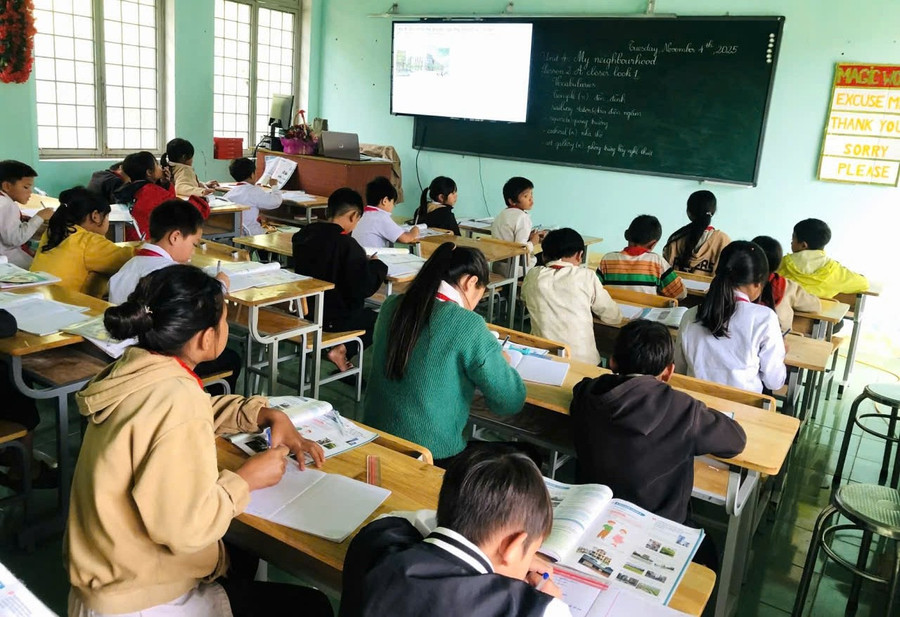
Sharing the same view, Mr. Tran Ngoc Manh, Principal of Xop Commune Primary and Secondary School (Quang Ngai), said that making English a second language is a big task, requiring the participation of the entire system. He proposed key groups of solutions to improve the quality of teaching and learning foreign languages.
Regarding the staff, it is necessary to promote professional development, communication skills and modern teaching methods for teachers, especially in disadvantaged areas. Expanding training courses, online classes and professional exchange programs will help teachers update their knowledge and increase their confidence in teaching.
Regarding the learning environment, Mr. Manh emphasized the role of creating an “English space” in schools. English clubs, English festivals, study corners, and extracurricular activities in English not only create excitement but also help students boldly use the language in daily life.
In terms of facilities, schools need to be equipped with standard foreign language classrooms, audio-visual equipment, and online learning software. Learning resources must also be rich, attractive, and suitable for students at different levels, especially children in rural and mountainous areas.
Regarding the coordination between school – family – society, parents need to understand the importance of English to accompany their children. In addition, mobilizing social resources and the participation of organizations and individuals will contribute to narrowing the gap between localities.
From a long-term perspective, Mr. Manh believes that English should be seen as an extended learning tool, accompanying other subjects, to increase applicability and help students understand the practical benefits of foreign languages.
“Learning English is not just for exams, but to open doors to life,” said Mr. Manh.
Source: https://giaoducthoidai.vn/dua-tieng-anh-thanh-ngon-ngu-thu-hai-can-lo-trinh-chac-chan-va-dong-bo-post756857.html


![[Photo] The Standing Committee of the Organizing Subcommittee serving the 14th National Party Congress meets on information and propaganda work for the Congress.](https://vphoto.vietnam.vn/thumb/1200x675/vietnam/resource/IMAGE/2025/11/19/1763531906775_tieu-ban-phuc-vu-dh-19-11-9302-614-jpg.webp)






























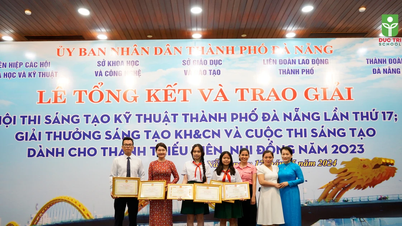
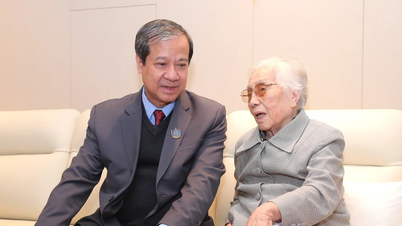
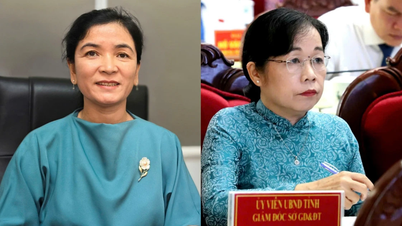
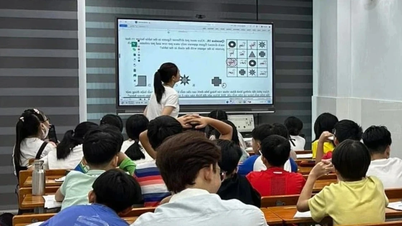


![[Photo] Prime Minister Pham Minh Chinh and his wife meet the Vietnamese community in Algeria](https://vphoto.vietnam.vn/thumb/1200x675/vietnam/resource/IMAGE/2025/11/19/1763510299099_1763510015166-jpg.webp)
![[Photo] General Secretary To Lam receives Slovakian Deputy Prime Minister and Minister of Defense Robert Kalinak](https://vphoto.vietnam.vn/thumb/1200x675/vietnam/resource/IMAGE/2025/11/18/1763467091441_a1-bnd-8261-6981-jpg.webp)












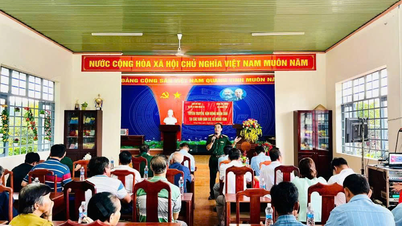

























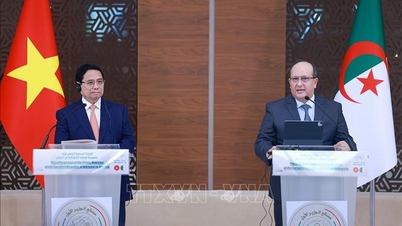
































Comment (0)